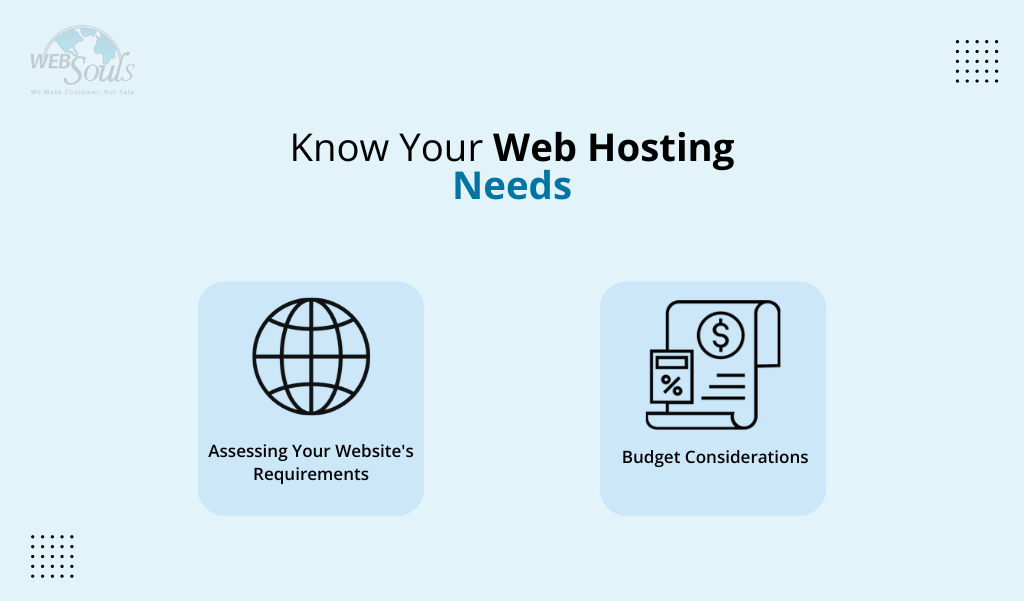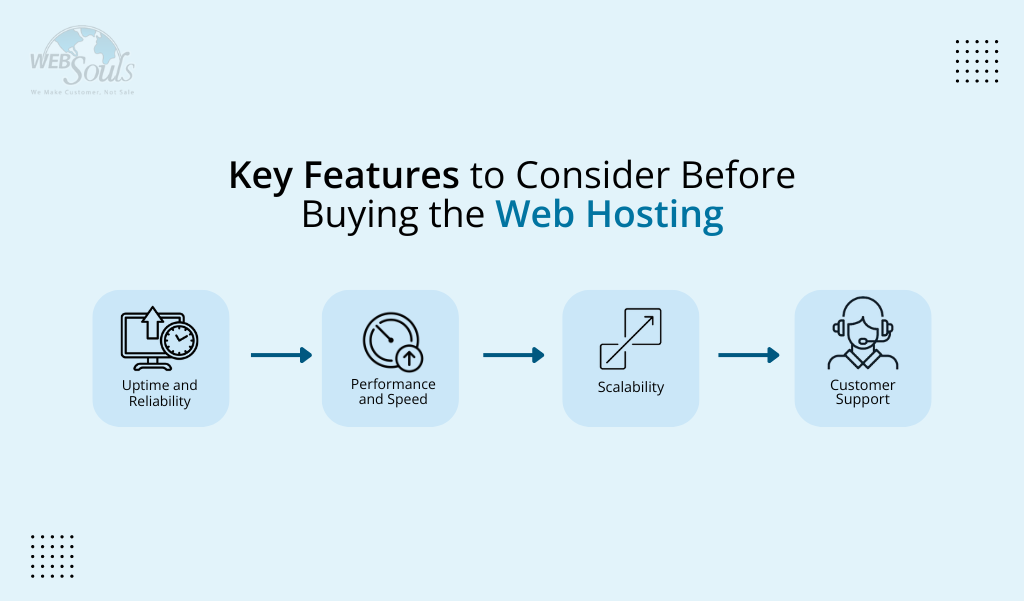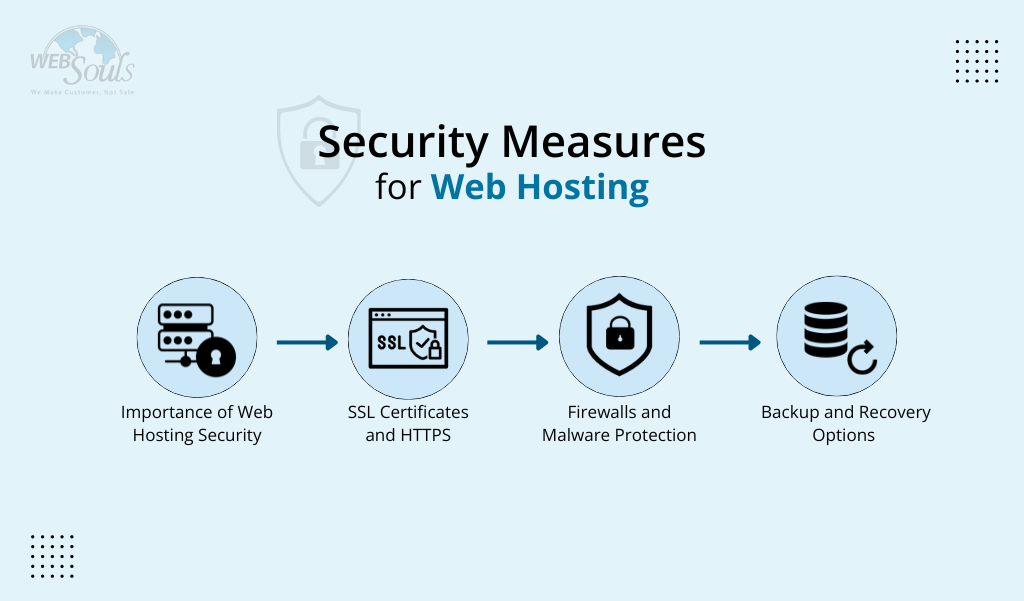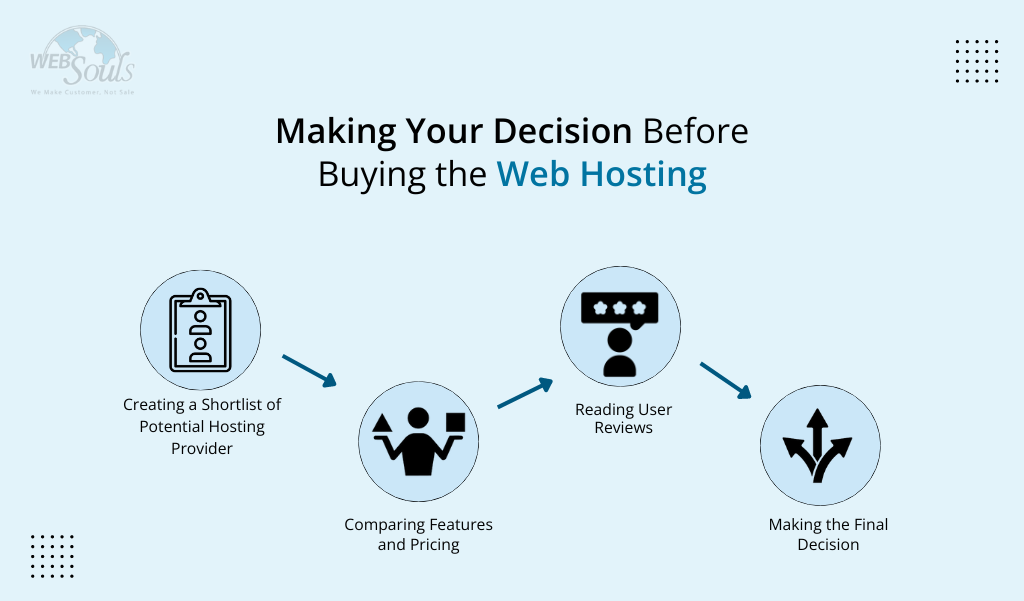Are you prepared to introduce your website to the digital world?
Choosing the ideal web hosting provider is the one decision that stands between you and success online in Pakistan. It might be intimidating to navigate this terrain because there are so many options accessible.
So do not panic! We'll demystify the procedure and provide you the information you need to make an informed choice in this guide.
1. Introduction
1. Definition of Web Hosting
Web hosting is a service provided by companies or individuals to organizations and individuals to post a website or web page onto the World Wide Web.
Fundamentally, it is a sort of web hosting in Pakistan where the files and records of the site are saved with a link to internet servers.
The access of the files is done through typing the domain name of the website.
Web hosting providers offer a number of hosting plans, including shared hosting—in which many websites share resources on a single server—up to dedicated hosting, where a whole server is rented out to host one website in Pakistan.
The website offers three different specialized hosting services: cloud hosting, virtual private servers (VPS), and reseller hosting.
Besides the basic services of storing files of a website, web hosting in Pakistan also includes provisions like email accounts, database support, security features, and technical support in the working and access of your website.
Web hosting is pretty much the base for every online presence by the people and the businesses across the world, giving connection and access to the users of the internet.
Even with the shift in the digital landscape, it still remains an integral part of the system that supports the seamless delivery of content and services on the web.
2. Importance of Choosing the Right Web Hosting Provider
It is a very important decision—the choice of the right web hosting service provider directly influences the performance, reliability, and even security of the website in Pakistan.
It depends on the kind of website, anticipated volumes of traffic, budget, and specific technical requirements the owner has.
With the reliable and credible web hosting service in Pakistan, the website will be readily accessible to the visitors all the time, thus ensuring there is reduced downtime and, by extension, reduced likelihood of losing potential revenue.
In addition, a good hosting company offers powerful security features that will be able to protect the website from the exposure of cyber-threats such as a malware attack, an attempt to hack, data breach, and many others in Pakistan.
A web hosting provider in Pakistan ensures more than just uptime and security features.
A good web hosting provider ensures site scalability in a way that your site should be adjusted for growth and sudden spikes in traffic without the site experiencing any performance trouble in Pakistan.
They also require superior customer support in order to clear the technical glitches in minimum possible time for a hassle-free user experience.
The next important factor for determining web loading speed is to make a good choice of the web hosting company, given that the speed of loading a website directly impacts on user experience and how it ranks on the search engine.
Fast loading of websites is what search engines like Google give priority to, and therefore speed optimization is one very key component in SEO (Search Engine Optimization) efforts.
Essentially, the importance of really being able to pick the best web hosting provider is really very high, as this is seen as the base success and viability for whatever online venture.
2. Understanding Your Hosting Needs

1. Assessing Your Website's Requirements
Understanding your web hosting needs and assessing the requirements your site will have are key to making a decision on which hosting plan to go for in Pakistan.
Issues to keep in mind include the size and complexity of your site, the amount of site traffic to be expected, plus any add-ons or extra features you will need.
For example, a small personal blog will do just fine with some shared hosting plan that offers basic features.
In contrast, a giant e-commerce platform doing huge scaling and serving many exacting visitors may need a dedicated server or cloud hosting, respectively, for the best provisioning and scaling.
Other factors, such as storage space, bandwidth allocation, and security protocols, all with great consideration for the guarantee of availability, play very important roles within the right determination of a web hosting solution in Pakistan to apply to a given individual project.
Analyzing these factors in relation to your goals and budget should be able to assist you in making a better decision, hence guaranteeing smooth operation and top performance of your website, hence better user experience and actualization of your online goals in the process.
a. Type of Website (Blog, E-commerce, Portfolio, etc.)
Highly guided by the purpose of the website, the features required and the type of web hosting in Pakistan one should take would be decided. For example, in a blog, the need is about the creation and distribution of text-based content.
Thus, the most cost-effective way is shared hosting, adequate both for storage and bandwidth for text.
An e-commerce website, on the other hand, requires strong levels of security, infrastructure that can scale up, and superior performance; hence, it usually requires dedicated or specially designed ecommerce hosting solutions.
A portfolio website—e.g., that of art, photography, or design projects—is best served with fast loading times, hosting at performance-oriented hosting, given the nature of the content.
Every type of website has different needs, and when these differences are understood, the choice can be made for the type of web hosting plan more convenient to your needs and goals, assuring good service and good experience for your user in Pakistan.
b. Expected Traffic Volume
In other words, these are some of the factors that would have much influence over your expected web hosting plan in Pakistan, since website scalability and performance are a must.
On the other hand, web hosting solutions in Pakistan should be at the resources and bandwidths for e-commerce sites that allow them to receive the inflow of visitors at any time without affecting loading times or site reliability.
More so, during product launches or when preparing for some type of promotional event.
If the level of website traffic is pretty low or it varies, it may be enough to consider buying a shared hosting plan, which will be a proof of cost-effectiveness with no overprovisioning of resources.
That way, with an understanding of projected traffic patterns, one can have a web hosting plan that could easily accommodate the peak loads yet maintain top performance with the lowest activity, ensuring a smooth experience for users that visit, traffic variations aside in Pakistan.
c. Technical Requirements (Programming Languages, Databases, etc.)
Besides the amount of traffic expected, it is important to understand the technical requirements of the site, making a good selection of the web hosting plan in Pakistan.
There are other different websites that may have some needs regarding the type of programming languages to use, databases, and other technical components.
If, for example, your site is going to be executed through a programming language such as PHP, Python, or Node.js, then, of course, you need a website host supporting the language being used and requiring a parallel server environment for execution.
In the same breath, as for websites with dynamic database-driven software such as the MySQL, PostgreSQL, or MongoDB database management systems, it will have provisions for the system to match its compatibility with adequate database support.
For the purposes of your site—including much more advanced features or frameworks, such as content management systems (CMS) like WordPress or e-commerce platforms, it really should provide the corresponding support and resources to integrate such needs in your hosting plan.
This ensures all features a website might have are compatible and functional with the offers hosting providers provide by comparing the technical requirements and their compatibility with the chosen web hosting provider in Pakistan.
2. Budget Considerations
The budget aspect has also been weighed as one of the foremost factors in making a choice about the web hosting plan in Pakistan.
However, other features and technical needs are apparently prime considerations, yet sustenance within the budgetary constraints is equally important to prevail in the long run.
Its cost may vary a lot, of course, depending on the type of web hosting (shared, VPS, dedicated, and so on) in Pakistan, additional services offered, and the kind of support given.
Balancing between affordability and value in such a way that you will be sure you receive value for what needs to be availed without necessarily becoming extravagant.
Also, most of the good hosting providers offer a variety of plans that fit your choice according to your financial resources and still be able to get the required accommodation of the website you want to host.
Also, consider that opting for much cheaper web hosting plans in Pakistan may save the cash you have at the moment, but it is always advisable to look into long-term costs in performance, reliability, and scalability to preclude future backsets.
With that said, most of the budgetary constraints evaluate the hosting options; you should go for the one that you have more money on to be able to realize the value without necessarily exceeding your financial means.
a. Different Hosting Plans and Their Costs
Companies offer a number of web hosting plans in Pakistan—basic, professional—with differing features, resources, and respective costs.
Thereby taking care of the diversity in website needs and budgetary considerations.
Shared hosting, in its turn, usually represents the most budgetary option, which could let a small website or one in its very beginning develop and which would make up for a few dollars to tens of dollars per month.
VPS offer more resources and control between a dedicated server and shared hosting, but with a price ranging between $20 to $100 per month, they are fit for modest traffic sites.
This includes the dedicated hosting, which avails a whole server dedicated only to one website, offering maximum performance and a lot of customizing options, with pricing between $80 and several hundred dollars a month.
Thus, appropriate for websites with unique settings or those with a lot of traffic.
For any website that has erratic and variable visitor traffic or that may suddenly require resource consumption, cloud hosting is an excellent option due to its flexible scalability options and usage-based pricing structure.
Also, there are the specialized ones that offer managed WordPress hosting or e-commerce hosting, especially meant for these kinds of websites, with special features and customer support at various levels of pricing.
By evaluating the features, resources, and prices of the many web hosting packages available in Lahore, one can determine which one best suits the demands of their website and their financial situation, guaranteeing that their investment will yield maximum return.
b. Balancing Features with Affordability
Balancing features with affordability is a crucial aspect of selecting the right hosting plan for your website.
Now, while most businesses in Karachi or Islamabad would want to go with the plan offering the most number of features, one really has to question: is that worth it if they don't even meet the actual needs of your website and the scope of your budget?
Focus on key aspects such as the amount of storage, bandwidth, security measures, and customer support so that you pay for what could be just the add-ons and not the value.
Other than that, consider how scalable the hosting plan is.
Get one that should always be upgradable to a much bigger one as your website continues to grow, but do not commit much more than what you actually require at the moment to the plan.
Weighing the features of the hosting plans with the cost involved, you are at a position that strikes a balance giving you value for your money while at the same time being able to get performance and reliability for your website.
3. Key Features to Consider

1. Uptime and Reliability
Uptime and dependability should be given top priority when choosing a hosting option.
Uptime is the proportion of time that a network or server is available to users and in operation. Maintaining uninterrupted accessibility for users of your website or application requires a high uptime percentage.
Hardware redundancy, data backup procedures, server stability, and other elements are all part of reliability, which helps to minimize downtime risk and maintain consistent performance.
Seek out web hosts who have a track record of dependability and uptime guarantees (usually stated as a percentage, such as 99.9% uptime guarantee).
Additionally, consider factors such as data center infrastructure, network connectivity, and disaster recovery plans to ensure maximum reliability for your hosting environment.
By prioritizing uptime and reliability, you can minimize disruptions to your online presence and provide a seamless user experience for your audience.
a. Importance of High Uptime
High uptime is crucial for maintaining a successful online presence and ensuring the continuous availability of your website or application to users.
Even small outages can have a detrimental effect on a brand's reputation, reduce user trust, and cost money in the current digital environment when customers want immediate access to information and services.
Customers may become dissatisfied with a website or application and possibly lose business if it frequently goes down or loads slowly, sending users to competitors.
For e-commerce platforms, where every minute of outage can result in lost sales opportunity, high uptime is especially critical.
Additionally, search engine rankings are directly impacted by uptime, as search engines reward websites that exhibit availability and dependability.
By prioritizing high uptime and partnering with hosting providers that offer robust infrastructure, redundant systems, and more, businesses can ensure uninterrupted access to their digital assets and maintain a competitive edge in the online marketplace.
b. How to Check Hosting Provider's Uptime Record
Checking a hosting provider's uptime record is essential for ensuring reliable service for your website or application.
One effective way to assess a hosting provider's uptime performance is to review uptime monitoring reports and statistics, which are often provided by independent third-party monitoring services.
These reports typically track a hosting provider's uptime percentage over a specified period, offering insights into their reliability and consistency in maintaining server uptime.
In order to determine past customers' experiences with uptime and general happiness with the hosting provider's services, you can also refer to user reviews and testimonials.
Asking the hosting provider directly about their service level agreements (SLAs), uptime guarantees, and high availability measures—like redundant hardware, network infrastructure, and data center facilities—is an additional strategy.
You can protect your online presence and make sure that your audience has a great online experience by choosing a hosting company that values uptime and reliability after doing extensive research and due diligence.
2. Performance and Speed
Critical aspects of the efficiency and effectiveness of a hosting provider include performance and speed.
Fast loading of websites and applications enhances user experience, but it also leads to good rankings by search engines and an increase in conversion rate.
Thus, prefer hosting providers that come with high-performing servers backed by some advanced hardware elements, such as Solid State Drives (SSDs), for better capabilities in data fetching and processing.
When comparing performance and speeds, it is worth paying attention to server hardware, details of the network infrastructure, and locations of the data centers.
Check further the network connectivity and bandwidth capacity of the service provider.
Check the use of content delivery networks (CDNs), which optimize data delivery in order to achieve reduced latency.
Other insights that may be useful to hosting performance in comparison to the industry include benchmarking comparisons with speed tests.
Prioritizing performance and speed in the choice of the best Pakistani web hosting assures businesses that their sites and applications perform to the max, delivering the best performance to then increase user satisfaction, taking up engagement, thus also increasing income.
a. Impact of Website Speed on User Experience
A website's speed greatly affects user happiness, engagement, and retention and is a major factor in determining the overall user experience.
According to studies, people are expecting almost quick loading times when viewing web material, and they have shorter attention spans.
Users who are irritated by slow-loading websites are more likely to bounce from the site, spend less time there, and convert less frequently. Furthermore, search engines prioritize websites that load quickly in their results, and website speed directly affects search engine rankings.
A faster website not only provides a smoother and more enjoyable browsing experience but also instills trust and credibility in users, reflecting positively on the brand or business.
Conversely, a slow website can damage a brand's reputation and drive users to seek alternatives.
Therefore, prioritizing performance and speed optimization is essential for businesses looking to enhance user experience, drive engagement, and achieve their online objectives effectively.
b. Factors Influencing Hosting Performance
Several factors influence hosting performance, directly impacting the speed and reliability of a website or application.
Server hardware plays a crucial role, with factors such as CPU processing power, RAM capacity, and disk type (e.g., SSDs vs. HDDs) affecting data retrieval and processing speeds.
Additionally, the network infrastructure, including bandwidth capacity, connectivity, and routing efficiency, influences data transfer speeds and latency.
Another important consideration is the data center's location, since being close to users helps reduce latency and speed up response times.
Additionally, the server optimization methods used by the hosting provider—such as caching systems, content delivery networks, and server-side scripting optimizations—are essential for improving performance.
Performance is also impacted by security measures that add more processing overhead, including intrusion detection systems and firewalls.
Businesses may guarantee optimal hosting performance and provide a smooth and responsive user experience for their audience by taking these elements into account and choosing a hosting provider.
3. Scalability
A key component of hosting performance is scalability, particularly for expanding websites and apps.
A hosting infrastructure is said to be scalable if it can accommodate rising traffic, data, or resource needs without sacrificing dependability or performance.
Websites and apps that are hosted on a scalable platform may adapt to sudden increases in traffic or user activity with ease, keeping them accessible and responsive even under different workload conditions.
In particular, cloud hosting provides inherent scalability by letting users dynamically assign resources and scale up or down in real time in response to demand.
Furthermore, load balancing, auto-scaling, and elastic resource management are commonly included in scalable hosting solutions, which help companies effectively handle traffic variations and adjust their infrastructure to meet their expansion goals.
Businesses can ensure that their websites and applications are future-proof and can adapt to the changing needs of their audience without any limitations by giving scalability first priority when choosing a hosting provider.
a. Planning for Future Growth
Businesses look forward to growing their online appearances and time by time expect increased traffic, which would require more resources.
This means that businesses need to choose hosting providers and solutions in such a way that they are flexible, scalable, and allow for room in the future for expansion by trying to predict the growth and scalability requirements.
This essentially would include projected growth in the traffic, changes expected in the user behavior, and either upgradation of functionality of the website required or enhancements.
Besides, businesses need to appraise their long-term goals in such a manner that the selected web hosting solution needs to be in a position to support the growing need of the business with necessary resources and capabilities to upscale the business without friction in Pakistan.
With scalable and future-proof hosting infrastructure, businesses minimize disruptions, optimize performance, and stand better chances of success in an ever-evolving digital landscape.
b. Assessing Hosting Scalability Options
Finding the best alternative for handling future growth and resource demands requires weighing a number of considerations when assessing hosting scalability options.
Scalability features like elastic resources that can adjust to changing workloads, auto-scaling capabilities, and flexible resource allocation are things that businesses should take into consideration from hosting providers.
In order to assess the scalability choices without compromising performance or reliability, it is also necessary to analyze the infrastructure of the provider.
Moreover, businesses should consider the scalability potential of different hosting solutions, such as cloud hosting, VPS, or dedicated servers, weighing the benefits and limitations of each option against their specific scalability requirements.
By conducting a thorough assessment of hosting scalability options, businesses can make informed decisions that align with their growth objectives, ensuring they have the flexibility and agility to scale their hosting infrastructure as their needs evolve.
4. Customer Support
Customer support is a crucial aspect of hosting services, particularly when considering scalability options.
Businesses should prioritize hosting providers that offer responsive and reliable customer support, as timely assistance is essential for addressing scalability issues, troubleshooting technical challenges, and ensuring uninterrupted service.
When assessing customer support, businesses should consider factors such as availability, response times, communication channels, and expertise of support staff.
To make sure help is always available when needed, look for hosting companies that give round-the-clock support through a variety of channels, such as live chat, phone support, and ticketing systems.
Review user comments, endorsements, and reviews from previous clients to assess the provider's customer service history and reputation.
When overcoming scalability issues and improving hosting infrastructure to efficiently support future development, a hosting company with exceptional customer service can be of great aid.
a. Importance of Responsive Customer Support
Businesses that depend on hosting services need to provide responsive customer assistance, especially when thinking about scalability alternatives.
Maintaining the continuity of operations and guaranteeing optimal performance during the scaling process requires the capacity to respond to any difficulties or concerns in a timely and efficient manner.
Businesses who have timely customer support are able to get help anytime they need it, get advice on how to optimize their hosting infrastructure, and tackle scalability-related issues quickly.
Furthermore, prompt customer service builds businesses' trust and confidence in the hosting by giving them the assurance that support is always available to them when they need it.
This proactive approach to customer support not only enhances the overall hosting experience but also demonstrates the web hosting provider's commitment to client satisfaction and success in Pakistan.
Ultimately, responsive customer support is instrumental in ensuring a smooth and seamless transition as businesses scale their hosting infrastructure to accommodate future growth.
b. Ways to Evaluate Customer Support Quality
In order to guarantee that companies receive prompt and dependable support when they need it, multiple variables are taken into account while assessing the caliber of customer service provided by hosting companies.
Test several support channels, including live chat, phone support, and ticketing systems, to gauge the provider's response and availability.
This is one method of gauging the quality of customer support.
Furthermore, companies can evaluate response times and success rates for support queries to assess the productivity and caliber of the team.
The experience and skills of support personnel should also be taken into account, as well-informed counsel and aid in addressing complicated problems can be obtained from competent agents.
Businesses should also assess the provider's commitment to customer satisfaction by reviewing user feedback, testimonials, and reviews from existing customers.
Furthermore, evaluating the provider's support resources, such as knowledge bases, documentation, and tutorials, can provide insights into the level of self-service support available to users.
By considering these factors, businesses can effectively evaluate the quality of customer support offered by hosting providers and make informed decisions when selecting a provider that best meets their needs.
4. Security Measures

1. Importance of Web Hosting Security
Besides the quality of customer support, another important criterion to take into account when choosing a web hosting provider is the security features.
This, in actual sense, helps underline the needs in terms of security in web hosting because in the infrastructure sensitive data will be stored. This is a start to protection against cyber threats and keeping websites and applications in one piece.
Web hosting security is the sum total of all security measures, which include network security protocols, firewalls, intrusion detection systems, and data encryption techniques proposed to bar any unauthorized access, data breaches, or malicious attacks.
Further, it protects the business from any possible threat.
With the secure hosting environment, the data of the user is kept, and the required confidence and trust are maintained.
Running a business with sensitive information, one needs to be sure of the level of security just like the regulations and standards outlined by GDPR, HIPAA, and PCI DSS Compliance for any hosting providers one gets into a contract with.
Accordingly, by making the security of web hosting a business priority and working only with providers for whom security is a priority, businesses can take several steps to hedge their risks against assets and reputation in this ever more digital and networked world.
2. SSL Certificates and HTTPS
SSL certificates and HTTPS play a crucial role in web hosting security by encrypting data transmitted between a user's browser and the server, ensuring confidentiality and integrity of information exchanged in Pakistan.
HTTPS, the secure version of HTTP, is enabled by SSL/TLS protocols, which establish a secure connection between the user's device and the server.
SSL certificates authenticate the identity of the website, providing users with assurance that they are interacting with a legitimate and secure site.
Modern browsers provide a padlock icon or "Secure" label in the address bar for HTTPS-enabled sites, informing users that their connection is safe.
SSL certificates and HTTPS also help to trust and credibility in addition to encryption.
Additionally, HTTPS websites rank higher in search results on platforms like Google, which encourages companies to use SSL certificates for enhanced SEO performance and visibility.
Businesses may improve user data security, web hosting security, audience trust, and overall website and application security posture by putting SSL certificates into practice and turning on HTTPS.
3. Firewalls and Malware Protection
Protecting against cyber dangers is facilitated by SSL certificates and HTTPS, but firewalls and virus protection are also essential parts of web hosting security in Pakistan.
Incoming and outgoing network traffic is monitored and filtered by firewalls according to pre-established security standards, serving as a barrier between the server of a website and the internet.
Enhancing the overall security posture of the hosting environment, they aid in preventing malicious attacks, unauthorized data transfers, and unauthorized access.
In contrast, malware prevention entails putting in place safeguards against ransomware, trojans, and other harmful software.
This includes deploying antivirus software, intrusion detection systems (IDS), and malware scanners to actively monitor for suspicious activity and protect against potential threats.
By incorporating firewalls and malware protection into their hosting infrastructure, businesses can effectively mitigate risks, prevent security breaches, and ensure the integrity and availability of their websites and applications.
4. Backup and Recovery Options
Backup and recovery options are essential components of web hosting security, providing a safety net against data loss and ensuring business continuity in the event of unforeseen incidents such as hardware failures, cyber attacks, or human error.
Effective backup solutions involve regularly creating copies of website data, databases, and configurations and storing them in secure off-site locations.
By having these backups, companies may swiftly restore their websites and applications to an earlier version, reducing downtime and any business interruptions.
Furthermore, having strong recovery options—like automated backup scheduling or one-click restoration tools—shortens the time and effort needed to restore services and streamlines the recovery process.
Businesses may provide resilience and peace of mind in the face of adversity by establishing comprehensive backup and recovery options that secure their precious data assets, minimize the effect of future calamities, and maintain continuous availability for their online presence.
5. Making Your Decision

1. Creating a Shortlist of Potential Hosting Providers
Businesses can go on to the next stage of the decision-making process by compiling a shortlist of possible hosting providers after they have carefully considered all relevant aspects.
This entails reducing the number of possibilities to a small number that most closely match the needs, preferences, and financial constraints of the company.
Companies should give top priority to hosting companies that provide the capabilities and services that are absolutely necessary to properly support their websites or applications.
Additionally, considering factors such as pricing plans, contract terms, and any special offers or discounts can help businesses further refine their shortlist.
By creating a shortlist of potential hosting providers, businesses can focus their attention on comparing the remaining options in more detail, facilitating the decision-making process and ultimately selecting the best-suited provider for their hosting needs.
2. Comparing Features and Pricing
After creating a shortlist of potential web hosting providers in Pakistan, the next step in making a decision involves comparing the features and pricing plans offered by each provider.
Businesses should carefully assess the range of features and services included in each hosting package, paying close attention to factors such as server resources, scalability options, security measures, and customer support.
Businesses should also take into account any other benefits or value-added services that each provider offers, such as domain registration, SSL certificates, or help with website migration.
Pricing is an important factor in addition to features, and companies should compare the costs of each hosting plan to the advantages and features that are offered.
It's critical to take into account additional costs in addition to the original cost, such as renewal rates, any additional costs, and the total value that each hosting package offers.
By comparing features and pricing plans in detail, businesses can make an informed decision and select the hosting provider that offers the best combination of features, value, and affordability to meet their specific requirements.
3. Reading User Reviews
Reading user reviews is a crucial step in the decision-making process when selecting a web hosting provider.
User reviews provide valuable insights into the real-world experiences of other customers, offering perspectives on the quality of service, reliability, performance, and customer support provided by each hosting provider.
By reading user reviews, businesses can gain a better understanding of the strengths and weaknesses of potential hosting providers, helping them make informed decisions based on the experiences of others.
It's critical to take into account a variety of reviews, both favorable and unfavorable, in order to obtain a whole picture of the performance and standing of the hosting company.
Businesses can also take note of any recurring themes or difficulties stated in evaluations, as they might point to prospective problems or areas where the hosting provider shines.
Through the utilization of user reviews in their decision-making process, companies may choose a web hosting service that meets their requirements and expectations, guaranteeing a satisfactory hosting experience for their websites or applications in Pakistan.
4. Making the Final Decision
When choosing a web hosting company, the information obtained from contrasting features, price ranges, and customer evaluations is combined and considered.
Businesses should thoroughly assess each hosting service based on these parameters, and then compare the advantages and disadvantages of each choice to their unique needs, preferences, and financial limits.
Prioritizing elements that are most important to the success of the company, like performance, dependability, customer service, and scalability, is crucial.
Businesses should also take into account any special requirements or expansion strategies that can affect their choice.
Once all considerations have been taken into account, businesses can confidently make the final decision and proceed with selecting the hosting provider that best meets their needs and objectives.
By making an informed decision based on thorough research and evaluation, businesses can set themselves up for success and ensure a positive hosting experience for their websites or applications.
6. Conclusion
1. Recap of Key Considerations and Emphasizing the Importance of Thorough Research
Summing up major considerations and underlining strictly that thorough research should be important, businesses have to realize that the choice of a web hosting provider is a crucial decision for them.
This information, synthesized by comparing features, taking a look at the pricing plan, reading user reviews, and after all is done, ensures businesses settle for the provider that best fits the specifics of their need and objective.
This involves carrying out detailed research to assist them in understanding, quite clearly, such issues as performance, reliability, security, scalability, and customer support.
This should clearly present to them the picture of laying a strong foundation and making an informed choice that will take them through with ease and speed.
Moreover, by ensuring proper time to carry out in-depth research and assess the hosting providers, they may avoid risks and guarantee an optimized hosting experience while getting ready for long-term growth and success in the digital landscape.
Therefore, every business should allocate enough time to make the most informed decision on who shall be its web hosting services provider.
2. Encouragement to Start the Hosting Journey
Businesses are urged to start their hosting adventure with confidence and excitement now that they have a complete grasp of the essential factors and the significance of doing extensive research before choosing a web hosting company.
Selecting a hosting company is a big step forward that will set the foundation for their success and online presence.
Businesses can make well-informed decisions that are in line with their objectives by adopting the process of investigating many options, contrasting features, and assessing customer feedback.
While the journey may seem daunting at first, it is also an opportunity for growth, learning, and discovery.
With the right mindset and approach, businesses can navigate the complexities of web hosting with ease and find a provider that not only meets their technical requirements but also supports their vision and ambitions.
As they embark on this journey, businesses are encouraged to remain open-minded, adaptable, and proactive, knowing that the rewards of finding the perfect hosting solution are well worth the effort invested.






